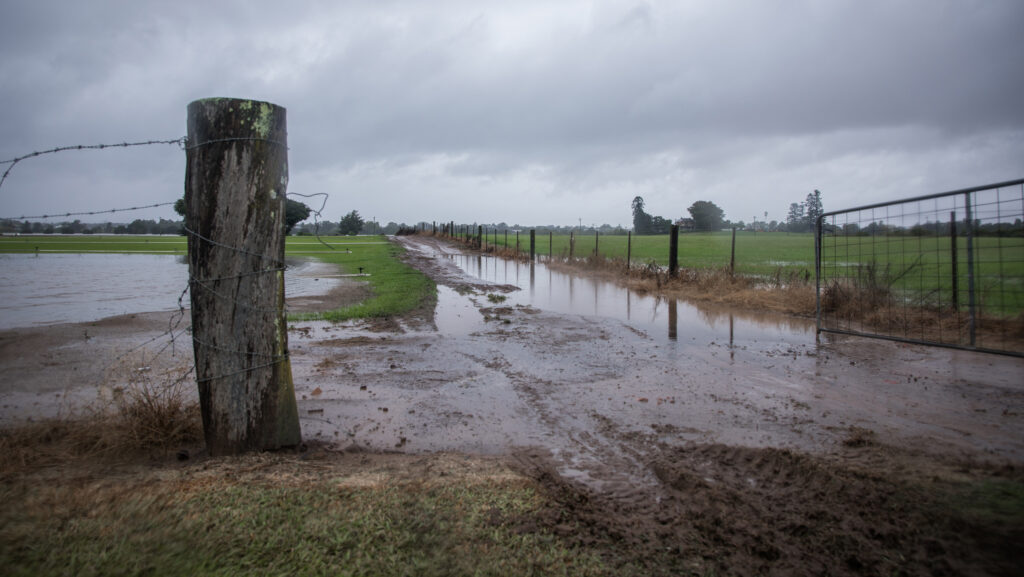Opinion: No ‘normal’ season since 2018
 © Adobe Stock
© Adobe Stock The period since October 2023 has been merely the latest and most extreme example of the future that awaits agricultural production in the UK as the world’s climate warms.
Space precludes me from listing the weather records which have been broken in recent months, but at Loddington we received our entire average annual rainfall between mid-October and the end of March.
See also: Opinion – farmers can’t pay for society’s ecological conscience
At the time of writing in mid-April, we have yet to turn a wheel since storm Babet last year and remain some 15% planted. A first “year without harvest” beckons.
Farmers across the country are in very similar boats (sometimes literally), with many doubtless anticipating the now-regular spring drought, which is likely to deliver the coup de grace to many shallow-rooted or mauled-in crops.
For me, the intensely hot and dry spring of 2018 heralded a turning point after which no season has been normal, and extreme weather has been the biggest challenge of the past six years.
The unfolding reality of climate change must force us to change how we farm; fallow fields and runaway soil erosion are unsustainable both financially and environmentally.
Some are calling for widespread government compensation for flooded and waterlogged fields, but that too would be an unsustainable burden on the public purse if this is to become a frequent occurrence.
And where would such a scheme stop?
The current arable and horticultural crisis will see huge knock-on impacts for the livestock sector, from the looming shortage of winter fodder and bedding to the higher levels of mortality from both weather and the climate-related influx of diseases such as Schmallenberg and bluetongue.
The loss of volatility mitigating direct payments in England is historic bad timing, but regretfully a done deal.
What is now needed is for government to acknowledge the changed risk profile of farming, and work with industry at pace to develop a mechanism to reduce that risk for producers in a warming climate, perhaps along the lines of the crop insurance schemes seen in many other countries where climate risk has been a longstanding concern.
We also need a national water strategy, to help manage the extremes of precipitation we now must expect as the norm.
We must use an expanded Sustainable Farming Incentive/Environmental Land Management (with a budget to match) to continue to drive the uptake of climate resilience measures in the farmed landscape (and to support the NFU’s net zero 2040 ambition) and be willing to support land use change where they are not sufficient; for example, towards more grazed land and agroforestry.
Perhaps most importantly, we must see cross-party commitment to greater fairness in the food supply chain to enable farmers to run commercially profitable businesses which can then invest in climate-resilient food production and nature.
These measures, and others, require a strategic cross-departmental plan from government.
Such a plan must view food security as more than just an annual media opportunity, and actually accept that our ability to produce plentiful and affordable food is no longer something to be taken for granted.
It must recognise too that the farmers producing the imports upon which we have become so reliant are facing the same climate pressures the world over.
As farmers, we must also accept that the way we may have done things for generations is, in many cases, no longer viable or sustainable: the climate is changing, and we must change with it.

